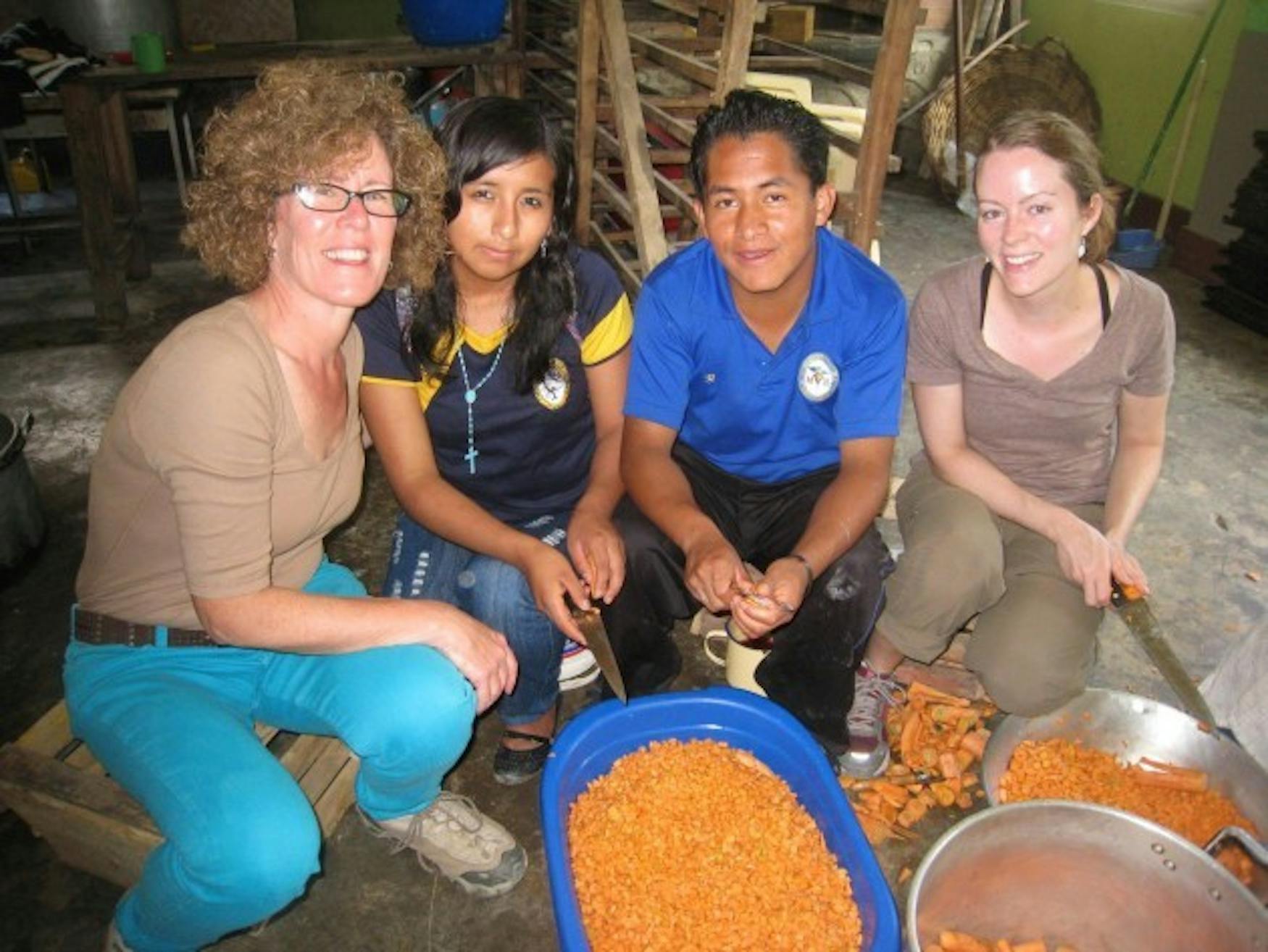Equality by the numbers
Rachel Satterlee investigates success of rural Bolivian students
For Freddy Villca Huanoca, a Bolivian college graduate, access to higher education meant an early warning system for severe weather for his small Bolivian community. For many other Bolivian students, the opportunity of education means progress and development in their rural towns. For Rachel Satterlee, these are the reasons that she fights daily to provide equal access to higher education to all people of the world.
As a second year student of the Sustainable International Development master's program at Brandeis University's Heller School of Social Policy and Management, Satterlee has embarked on a six-month work practicum to study the effects of higher education on members of rural communities in Bolivia. Located at the Unidad Acad?(c)mica Campesina - Carmen Pampa, she has been working with
graduates to create a comprehensive understanding of the impact of the college on rural living.
Satterlee first became involved with the help of the Carmen Pampa Fund, an organization dedicated to the growth and development of UAC-CP. After graduating from The College of St. Scholastica in Diluth, Minn., Satterlee knew that she wanted a program connected both to Minnesota and to Bolivia. As the main funding arm for the college, she says she commends the fund for being "incredibly supportive" throughout her work practicum.
The UAC-CP, which has about 700 current students and around 400 graduates, focusses on helping students from indigenous families earn degrees related to their livelihoods. The students are then able to use their degrees to further develop their rural home communities and promote economic and social change.
As the impact evaluation coordinator, Satterlee is helping the college gauge how graduates are implementing their degrees, and "use suggestions that graduates have in order to promote the college and in order to gain more funding," she says.
Satterlee breaks down her work practicum into three phases. The first phase consisted mostly of database work, including "cleaning up the current database and surveying information on graduates," she says.
Currently, she is nearing the end of the second phase, a research period focused on gathering information about the impact of UAC-CP. In order to complete her research, Satterlee explains that she is finding graduates of the college to interview and survey, "to see what they're doing now, if they're using their degrees and how their degrees have helped them get to where they are today," she says.
The only way to do this, she explains, is by taking long bus rides to rural towns where graduates currently work, outfitted generally with only a few phone numbers and her own determination. "Basically, if it was a really small town, I would show up and call a few people, and start asking around to see if people knew any graduates of UAC," she says.
"It turned out to be a pretty grassroots method of finding people, but it actually worked very well in smaller towns," Satterlee explains.
After finishing this research, Satterlee will begin the third phase, in which she will enter all of her gathered data into a database. Since it is not feasible to use electronic surveying in the field, Satterlee must convert the data into electronic form and compile it "so that the college can use it in future fundraising and analysis efforts," she says.
The goal of the research is to be able to present data to stakeholders of the college in order to have a wider outreach, a larger funding base and provide feedback to previous and current funders, such as the United States Agency for International Development. Satterlee also explains that they hope to be able to improve UAC-CP's programs based on the suggestions of the graduates.
Satterlee says she has come to gain much appreciation for the people she has worked with and their commitment to the betterment of their communities. An encounter with a graduate named Freddy Villca stands out. As a graduate of UAC-CP, he currently works for the government in Charazani, located nearly 160 miles northwest of La Paz. He is also the designer and manager of a severe weather emergency alert system, a community-led project built to warn people of upcoming weather events.
Because of climate change, Satterlee explains, his community has "been experiencing draught, frost, heat, hail, and heavy rains." Not only will the new system help predict weather and protect farmers' crops and animals, but it has also served as "a really empowering, community-building project," she says.
"They now feel that they have some sort of control over their future that they didn't have before," Satterlee explains.
Although she is still in the midst of her research, she offers advice about the experience of a work practicum in another country. "I have realized that early on when I was uncertain about what I was doing ... I spent a lot of time tweaking the survey," she concedes. Looking back, she says, "I would advise people to just jump right in and use the knowledge that you've gained in your program and in your work experience."
For Satterlee, that knowledge came from the Sustainable International Development program, a two-year masters program at the Heller School. Students have the option to complete two years of course work, or a year of course work and a year of field experience.
Satterlee says that she chose the Heller School because "I knew that I wanted a program that would give me the solid training and the skills and tools that I would need for the job, but then also give me some work experience," she says. Satterlee explains that she was also drawn to the diversity of the classroom. "It was a group of people from all over the world who had all sorts of experiences and levels of work experience... I learned a lot from my classmates, as well as my professors," she says.
Now that she is in the last year of her master's program, Satterlee says that she is ready to continue forward into a career. Having always been involved in the field of higher education, she hopes to find a place with an international non-governmental organization that supports this cause. "A lot of my work has been focused on higher-education and higher-education access. That's been my passion and what continues to be a driving force behind my work," she says.
As a model for social justice and activism, Satterlee has truly found her place as an advocate for all those who deserve access to higher education, but who often lack the resources. Not one to sit on the sidelines, Satterlee offers some simple, yet powerful, advice to those striving to be a force in the global fight for social justice.
"Contribute your best," she says, "and don't be afraid to dive right in."




Please note All comments are eligible for publication in The Justice.